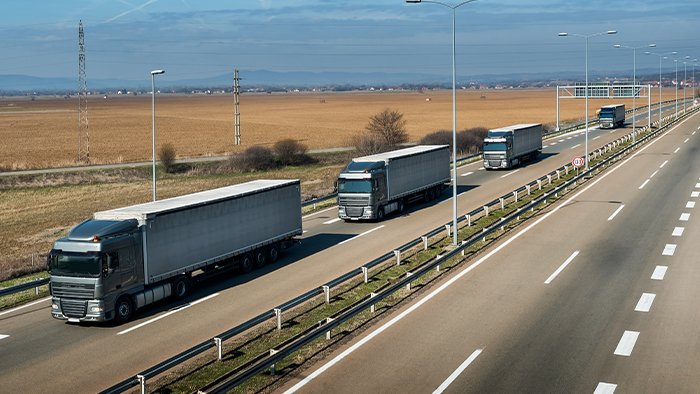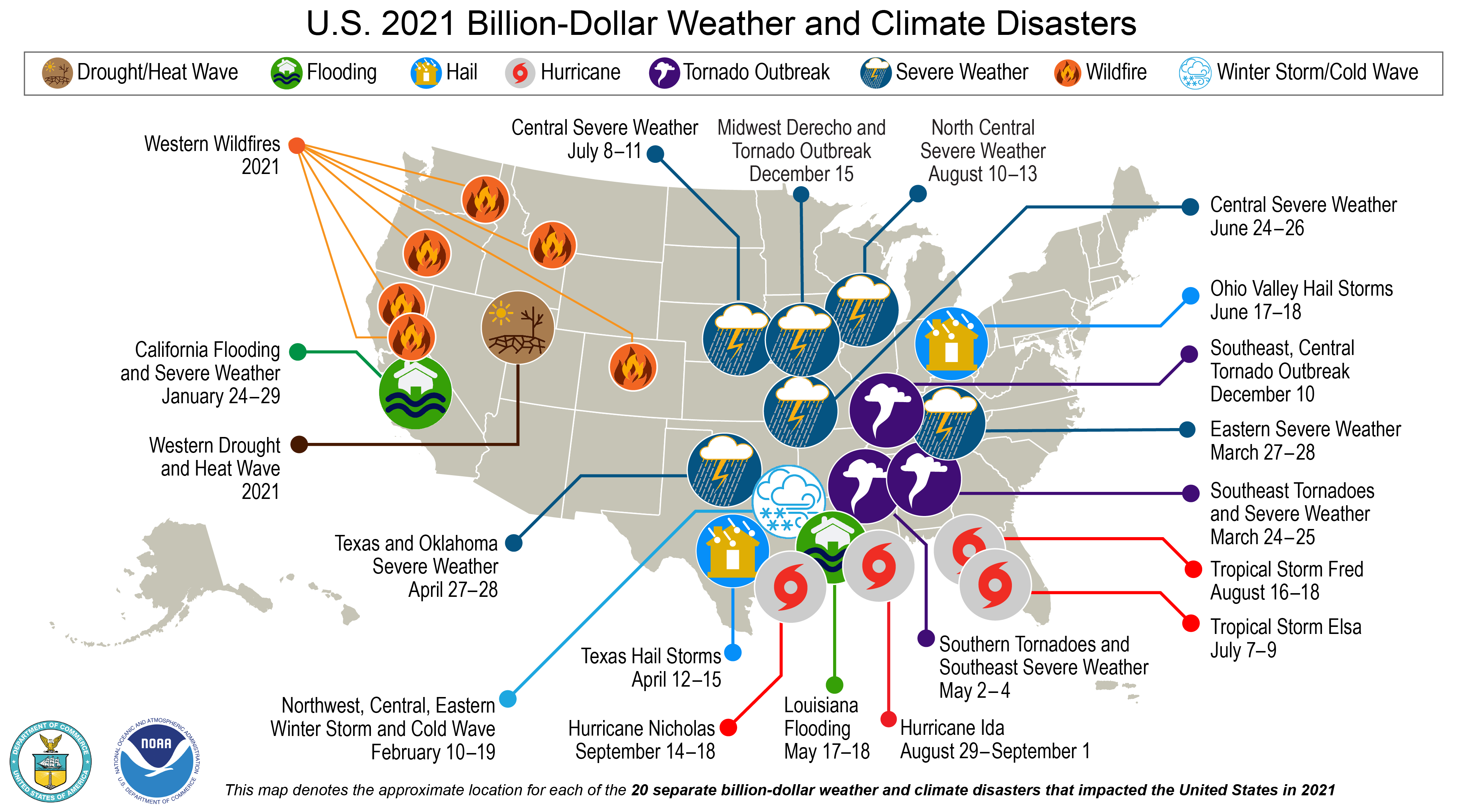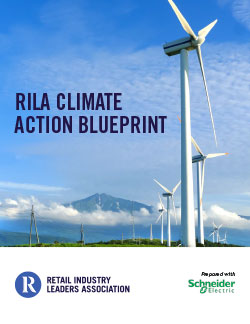- Home
- Focus Areas
- Sustainability / Environment
- RILA Climate Action Blueprint (2022)
RILA Climate Action Blueprint (2022)
- 01/27/2022
In light of the urgent climate crisis, RILA has created a Climate Action Blueprint in partnership with its members and other thought leaders, to serve as clearinghouse of approaches for US-based retail companies seeking a path to a net zero emissions future. The Blueprint was created with Schneider Electric and reviewed by a Steering Committee of RILA members and World Wildlife Fund (WWF).
The intent of the Blueprint is to provide emissions reduction guidance applicable to any retail company’s strategy, regardless of where the company is on its decarbonization journey. These tactics are therefore not prescriptive, and each company’s approach will vary based on its unique business.A BRIEF OVERVIEW OF THE BLUEPRINT
RILA’s goal is to place the most important climate change concepts into the retail context, to provide companies with an exceptionally actionable tool to help them on their climate impact journey.
As retailers work through the blueprint, they will find helpful data and resources on the urgency to act, the emissions breakdown for the retail industry, and the business response to the climate emergency, followed by in-depth explainers to walk retailers through understanding their own decarbonization blueprint, decarbonization levers, and next steps.
Urgency to Act
There is now a global understanding of the human impact role in climate change and the need for transformational change.
There is now a global understanding of the human impact role in climate change and the need for transformational change. We are seeing the cost of inaction by way of billion-dollar weather and climate disasters that impact our daily lives, often concentrated in vulnerable communities. Continuing business as usual is not an option for a livable future – significant action is required to create a sustainable future.
Employing approximately 15 million people and representing approximately $5.4 trillion in sales, the retail industry is a significant economic and cultural force in the US. Given the wide-ranging impacts of climate change, the retail sector’s imperative to act comes from the combined driving forces of the risk of inaction, company identity and values, regulation, stakeholder demands, and the benefits of leadership.
Retail Industry Emissions Breakdown
At the heart of every sustainability strategy lies the need for robust, measurable data.
At the heart of every sustainability strategy lies the need for robust, measurable data. However, many companies are often uncertain of where to begin and are intimidated by the prospect of a long and expensive journey into data collection. This is one of the most notable barriers to enabling measurable retail climate action.
What is most important is for a company interested in climate action to start with what data they can gather, be clear in stakeholder communications and take an iterative approach to data collection.
By following a data insights journey as outlined in this section of the Blueprint, retailers can act and begin their journey to decarbonize, regardless of whether a company has decades of data collection experience or is just getting started.
The Business Response to the Climate Emergency
Given the systemic impacts of the climate crisis, companies are responding to the climate emergency in several ways.
Towards a Zero-Carbon Future
When approaching the transition to a zero-carbon economy, there are different decarbonization levers to “pull”.
When approaching the transition to a zero-carbon economy, there are different decarbonization levers to “pull”. Decarbonization Levers focus on emission sources from Scopes 1, 2 and 3 and are tactics and activities to commit, prioritize and abate emissions. Several emissions categories bring a considerable human engagement layer to addressing climate impacts by evaluating key stakeholders needs, including addressing how to decarbonize in a way that brings value to your customers, meets employee demand, and sets up your organization’s governance and broader actions to be consistent and reputable.
The Blueprint provides analysis and tactics for retailers as they consider their six decarbonization levers: commitment, operations, influence, customers, employees, and governance and external advocacy.
Partner

Schneider Electric
Schneider Electric SE is a French multinational company providing energy and automation digital solutions for efficiency and sustainability. It addresses homes, buildings, data centers, infrastructure and industries, by combining energy technologies, real-time automation, software and services.
Addressing climate change requires thoughtful & meaningful action

Effective public policy has a critical role to play in protecting communities and economies globally from climate change’s most disruptive impacts.
Retail Climate PrioritiesOur Role
RILA believes effective public policy is paramount in supporting climate action within communities and businesses and urges the US government to collaborate on bipartisan legislation that supports innovation, economic resiliency, and energy efficiency to drive the United States become more resilient against climate disruptions and better prepared to reduce emissions across all sectors. As such, the retail industry is an ally in the fight against climate change and stands ready to partner with policymakers to work toward a sustainable future for all. In April 2020 under its Retail Climate Priorities, RILA recognized key impact areas for retail climate action, including: transportation, clean energy, building and facilities, waste, and corporate governance and disclosure.
RILA and its members have an over decade long history of working collaboratively to reduce retail GHG emissions through several different communities and resources.
Additional Resources

Sustainability Committee
Retail sustainability/CSR executives meet twice per year, plus monthly via conference call, to share leading practices and network.
Learn More
Transportation and Sustainability Webinar Series 2021
RILA presented a six-part webinar series, exploring solutions to the challenges many retailers face at the intersection of logistics and sustainability—from understanding scope 3 emissions to reducing empty miles. (May-July 2021)
Learn More
Retail Compliance Center
Retail Compliance Center provides retailers with the information they need to remain compliant and improve environmental performance.
Learn More
Retail Climate Action Blueprint
RILA partnered with Schneider Electric on this webinar for for a high-level overview of the Blueprint
Learn More

